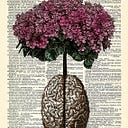Member-only story
5 Surprising Arabic Etymologies
Believe it or not, these words come from Arabic
Before the Arab and Western worlds became locked in antagonisms, their relationship was one of rich collaboration and dialogue. From this cross-cultural sharing comes words with well-known Arabic origins, such as cotton and algebra, both of which were exports of the flourishing Islamic empire as it contacted medieval Europe.
But aside from these, there are a number of Arabic-derived words which are probably less recognizable — both to English and Arabic-speakers. These words give little to no indication of their authentic roots, but their etymologies and historical context make them unmistakably Arabic.
Here are five of such words in the English language: words with a surprising Arabic lineage, whose histories attest to the confluence of the Arab and Western worlds.
‘Mocha’
You can find this word displayed in coffeeshops around the world, where fans of sweet coffee drinks are likely to make it a regular order. A mocha is essentially a latte to which flavoring has been added — typically, cocoa powder or chocolate syrup — thus combining the…
